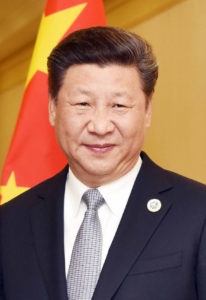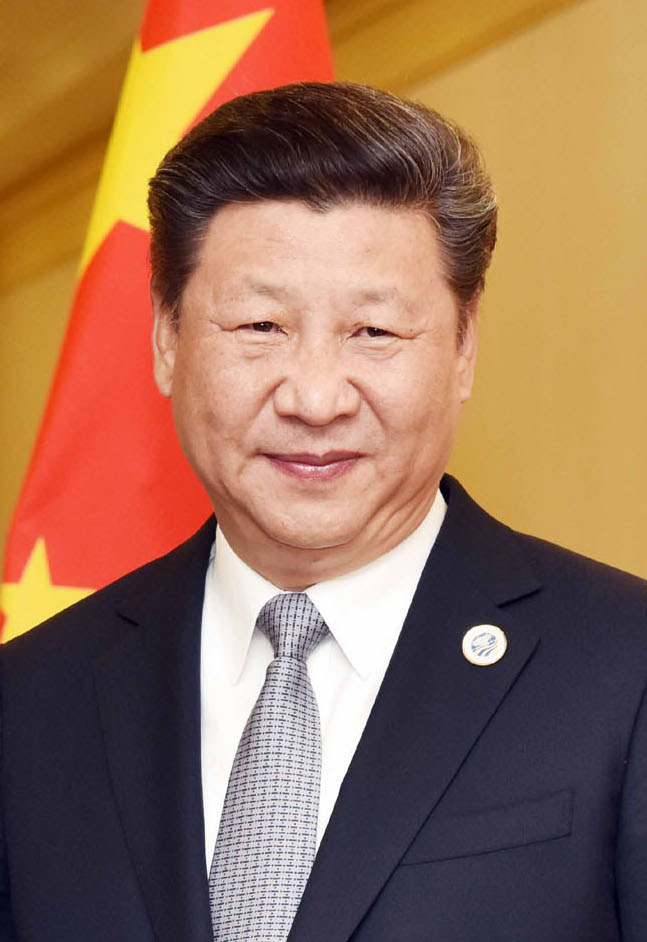
The Power of ‘Xi Jinping Thought’
Last October, the 19th National Congress of the People’s Republic of China took place in Beijing. Over the course of the week-long congress, top Chinese leaders met to discuss reforms, elect new leadership and define national priorities. Occurring only once every five years, the event is of critical importance not only for China but for the entire international community. This year, however, the Congress made a decision that extended beyond its normal functions: in an unprecedented move, it voted unanimously to incorporate “Xi Jinping thought” into the Chinese constitution.
This decision signals much greater change than adding symbolic phrases to a document – it radically transforms the role of the President within the Chinese government, expanding his influence over the population. Although the President has always had a great degree of power over national decisions, he has also largely relied on the Chinese Communist Party’s (CCP) approval and guidance. But now, the codification of “Xi Jinping thought” into the constitution has granted him expanded influence and control over national governance; he is now the only President aside from Mao Zedong to have his name and agenda written into the Constitution. This move is significant not only because it concretely cements Xi’s growing autonomy, but also because it elevates his symbolic status to the same level as that of Chairman Mao. From now on, any challenge to his power will be seen as a direct threat to the Communist Party.
Benevolent Father or Tyrannical Monarch?
President Xi now has expanded agency to further his initiatives, many of which are nationalistic in nature, like increasing control over Hong Kong and Taiwan, expanding government control over the army, and boosting China’s international economic power. With this agenda, Xi will most likely continue China’s trend of growing more involved in international affairs over the past several decades.
On one hand, China’s push to establish itself as a world leader has had many positive effects, including renewed efforts to improve China’s environmental policy and lessen its carbon footprint. This demonstrates that President Xi is in many ways a very forward-thinking leader seeking to cooperate with other countries. On the other hand, he still holds firmly to many communist/authoritarian ideologies that clash with liberal Western ideals–for instance, his rule has brought a dramatic increase in nationalistic propaganda and a crackdown on human rights. To promote the Belt and Road Initiative, he has issued a series of so-called “Bedtime Stories” which portray him as a kindly “Daddy Xi,” father of all Chinese men and women. Although this is not inherently malevolent, the amount of effort the government expends in shaping Xi’s image does demonstrate that it is willing to take large and costly measure to achieve Xi’s goals. This is good news for some, such as Chinese companies, but spells trouble for those the government identifies as opponents or dissidents.
Christianity in Crisis
One such group that has had a rocky relationship with the government and is sometimes seen as a threat to the state is the Christian population in China. Although the Chinese Communist Party is grounded in Confucian ideology and unassociated with any religion, it looks down upon and heavily discourages certain faiths. In particular, the Christian community in China has felt the force of the CCP’s disapproval.
While the CCP has not explicitly stated its opposition to the faith, it certainly has discouraged its spread using more covert measures, such as mandating churches to install cameras. This allows for the government to monitor and “ensure that their sermons do not broach taboo topics.” However, not only does the definition of what the government considers taboo cover a wide variety of subjects, it actually asks that churches preach Communist ideology. Churches that do agree to this must compromise on their core values, making many Christians question whether this doctrine is sound or even can truly be considered the same religion.
Other than these state-sanctioned Christian churches, there are also underground churches that refuse to compromise on their values. Despite the government’s disapproval, a large underground Christian community has taken root and continues to grow. While the conditions have never been favorable for these Christians, the government has increased its crackdown in the past couple of years. This is caused by President Xi’s desire for China to replace the United States not only as an economic giant, but also as a cultural and thought leader.
Looked down on as a “Western influence,” Christianity specifically contradicts Xi’s desire for the population as a whole to fully throw off outside ideology and take pride in their Chinese heritage. Because of this, Christianity faces significant opposition from the government and missionaries face experience numerous barriers to entry.
One missionary, who wishes to remain anonymous for her own safety and that of her organization’s, said that it is much harder to bring Bibles into the country now than it was even two years ago. Based in Hong Kong, her organization works to bring Bibles into mainland China by smuggling them across the border via Shenzhen, then distributes the texts across the country. Though the organization has been largely successful in dodging government scrutiny, last November one of the workers was caught, arrested, and sentenced to two months in prison.
It’s China’s World, We’re Just Living in It
The full extent of Xi Jinping’s newfound status has yet to be revealed and its implications clearly extend beyond what has already taken place. The question now is how the president will exercise his power and how this will influence his own country and the international community. Already, people around the world are feeling the force of Xi’s increasingly powerful China on an economic level. Sipping “cheap Chinese beer” and wolfing down dumplings, Pakistani citizens illustrate the tangible benefits that increasing Chinese presence can bring for a foreign country. However, others are not quite so keen to embrace a world in which China is a great power. The US especially feels its current power is being threatened. Whether opposing new Chinese initiatives, such as the Belt and Road, or competing to control the Arctic region, or levying harsh, punitive tariffs, the US has adopted a guarded, at times antagonistic approach towards China.
Yet China is only continuing to grow, and the US should not deny or fight this change. If the US continues on this trajectory, it may risk sinking into international irrelevance even sooner. Instead of accelerating its own decline, the US should swallow its pride and realize that it has much to gain by cooperating with China. If the nation embraces China and adapts to the current situation, it actually has the potential to grow its economic and political reach both now and in the future.
The views expressed by the author do not necessarily reflect those of the Glimpse from the Globe staff, editors or governors.







